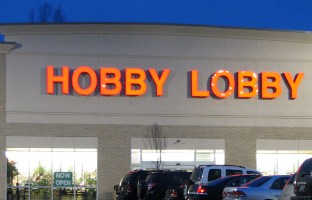Whose religious freedom?

Last month the Supreme Court heard opening arguments in two cases pitting the Affordable Care Act’s contraception mandate against the religious objections of private business owners. The Christian owners of Hobby Lobby and Conestoga Wood Specialties object to the ACA’s requirement that employee health-insurance plans cover emergency contraceptives, which they believe constitute abortion.
The court has a whole tangle of questions to consider: Are corporations people in every legal sense? Do for-profit entities have religious rights? If so, are they overruled by a compelling governmental interest in expanded contraception coverage? If these claims by a for-profit are upheld, could employers also lodge religious objections against coverage for blood transfusions or vaccinations or against various kinds of family leave?
The business owners are appealing to the Religious Freedom Restoration Act of 1993, which aims to protect religious exercise from burdensome laws. A large bipartisan majority passed the RFRA, largely in response to a series of court decisions against free-exercise claims by adherents of Native American religions. It’s a good law. And the fact that the RFRA’s protections were aimed at minority faiths doesn’t prevent them from applying to Christians as well.




